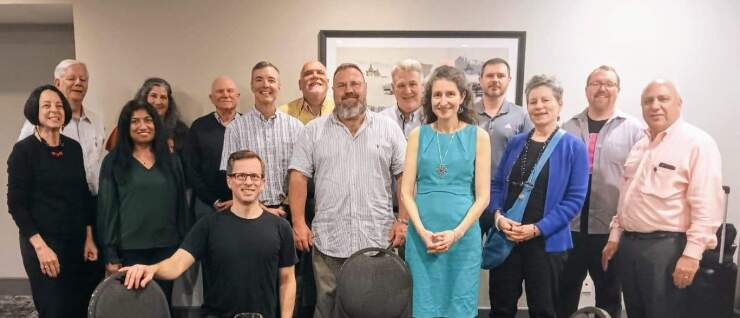Financial advisors trying to drive the profession to be more transparent about fees and services will meet next month at a conference designed to be different from any other in the industry.
The
The free professional development and practice management group for planners launched in September 2022. It is the brainchild of planners interested in shaping the future of the profession under the collaborative leadership of Sara Grillo, a lead generation and marketing consultant and former advisor
Planners have criticized
"It should be the paradigm for conferences in our industry in general. We're not here to be entertained," Grillo said. "We should be focused, nose to the grindstone, making ourselves better."
READ MORE:
The transparency-focused group is growing through its
"'Fiduciary' is a really easy word to say, but
What the Transparent Advisor Movement aims to accomplish
The "transparency" that the Transparent Advisor Movement is seeking to encourage revolves around practices such as collecting a fair fee, displaying it on advisory practices' websites and other places it's easy to find and understand and being upfront with customers when their needs fall outside the firm's expertise, according to planner Scott Salaske, founder of Troy, Michigan-based
"It's a slow change," Salaske said. "Our movement is a speck of sand on a big beach, so it moves slowly."
The conference will feature meetings of the attendee pods, how-to presentations on building a firm without AUM fees and a "non-affiliated, independent dinner" that "participants coordinate themselves" with a warning that the cost isn't included in their ticket price. That last part alone forms a notable contrast with most industry conferences, which often feature pricey receptions and dinners paid for by fund, insurance and technology company sponsors pitching advisors and wealth management firms on their products.
"The people who come to Immersion are those who are called to the mission of furthering the ideals of: clarity, integrity, humility, fairness, logic and advocacy," according to the conference's website. "There is a special focus on
READ MORE:
Advisors participating in the group can bring more transparency to the profession than any regulatory rules, according to Grillo.
"The regulators are so backwards that they can't even catch the people who are out there doing criminal activity, so they can't be counted upon," she said. "If the consumers knew that there were better options available, then they would clearly pursue the same product at a much lower price."
The movement also provides a home for younger advisors or career changers who must "understand the profitability and how you can run a business and be fee-only and charge fair fees to clients," Salaske said.
"They see this as the right path, they want to be transparent, they're trying to do the right thing for clients, but they're trying to differentiate and figure out, 'How can I find new clients?'" he said. "You're trying to move a tribe forward and trying to bring other people who are going to join the movement."






